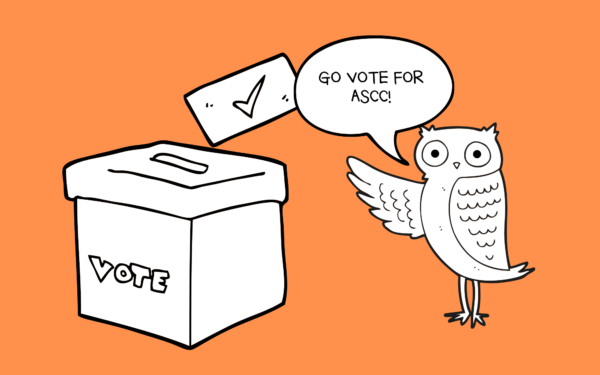
Close to the upcoming student leadership election, the Associated Students of Citrus College was unable to hold its April 26 meeting.
The next meeting will not be held until May 3, one day after voting starts for new ASCC leadership.
The ASCC was supposed to hold a vote to elect a new president to finish the 2021-2022 school year and finalize the 2022-2023 budget.
“It is really important that your fellow student leaders are here Tuesday,” ASCC adviser and Dean of Students Maryann Tolano-Leveque said to the ASCC student officers. “Just because, election for ASCC president and then also your budget. So, if you can encourage each other to be here, we need at least four people (officers) to conduct business.”
The three officers in attendance were student trustee Taylor McNeal, senator Hala Fakhoury, and legislative liaison Arvin Shahid.
Daniel Caldera, the ASCC former president, resigned April 6 due to personal problems, ASCC adviser and Student life supervisor Rosario Garcia said.
ASCC is responsible for overseeing many student affairs, and the budget shows what the income and expenses are for the 2022-2023 academic year. The ASCC budget that was moved to the next meeting shows items such as service fees that students pay totaling $314,244 and expenses such as salaries totaling $284,928, according to the April 26 ASCC agenda.
“We just recently had in-person meetings,” Fakhoury said. “This was supposed to be our second one.”
Fakhoury said that other than having a canceled meeting, ASCC has had a successful term.
McNeal said that the incoming ASCC officers will have real input from the Citrus College board.
“You (student officer) should always be thinking about Citrus College as a whole and what’s better for the students as a general population,” McNeal said. “Always make sure you’re on time for things and that you’re always prepared.”
The ASSC election code says that a candidate must receive 50 votes to be elected into position. The voting procedure was modified in the 2021-2022 election to allow the current ASCC officers to be elected.
Garcia said in an email that she and Tolano-Leveque circumvented the normal voting system for the 2021-2022 election.
“It(voting) was due to low participation,” Garcia said in an email. “Due to COVID-19 restrictions and the remote learning environment during the ASCC election, an exception was made to allow students to win with a simple majority of the votes. Many community colleges experienced similar situations.”
Garcia said in an email that she is hopeful that the 2022-2023 election will not have to be modified.


